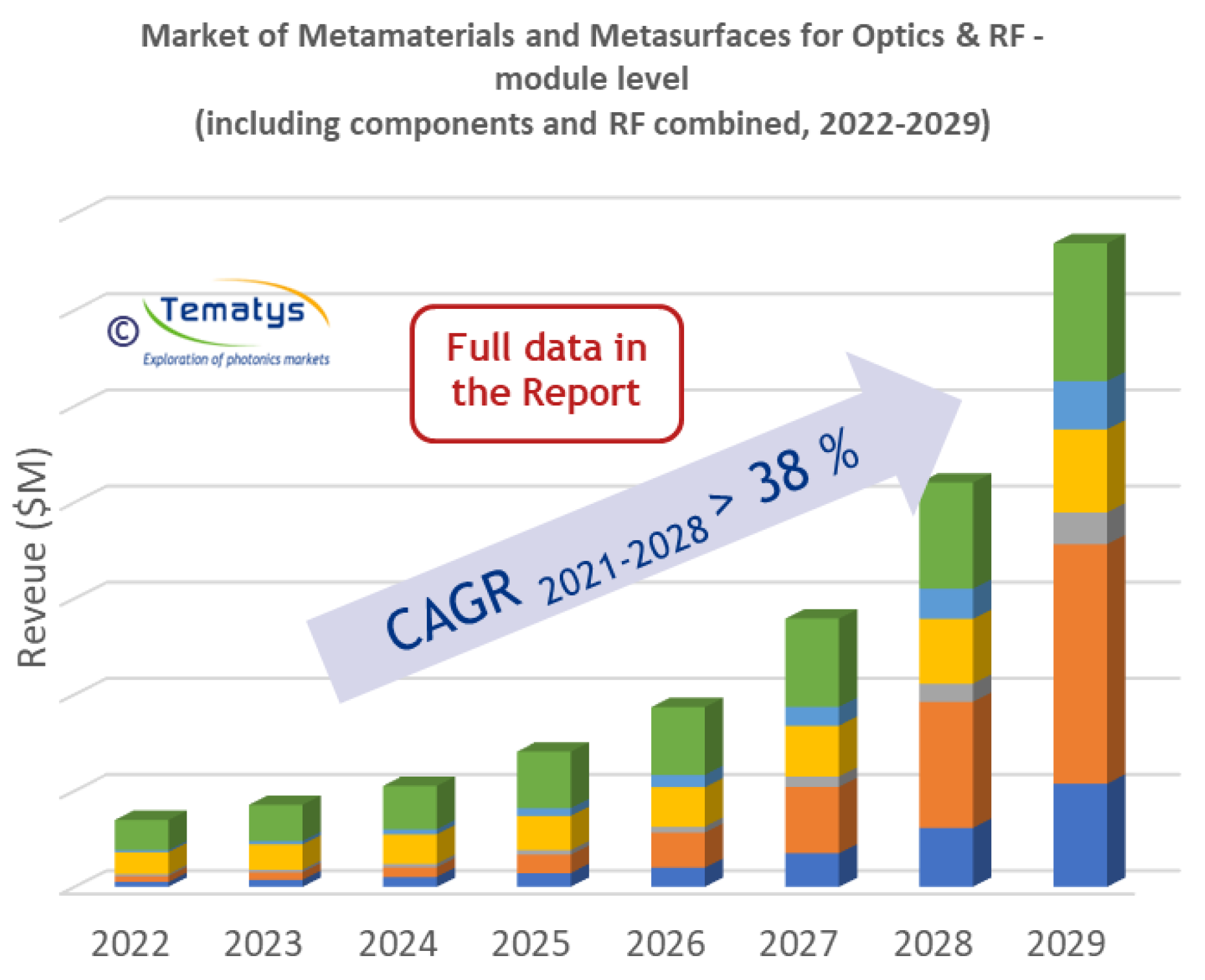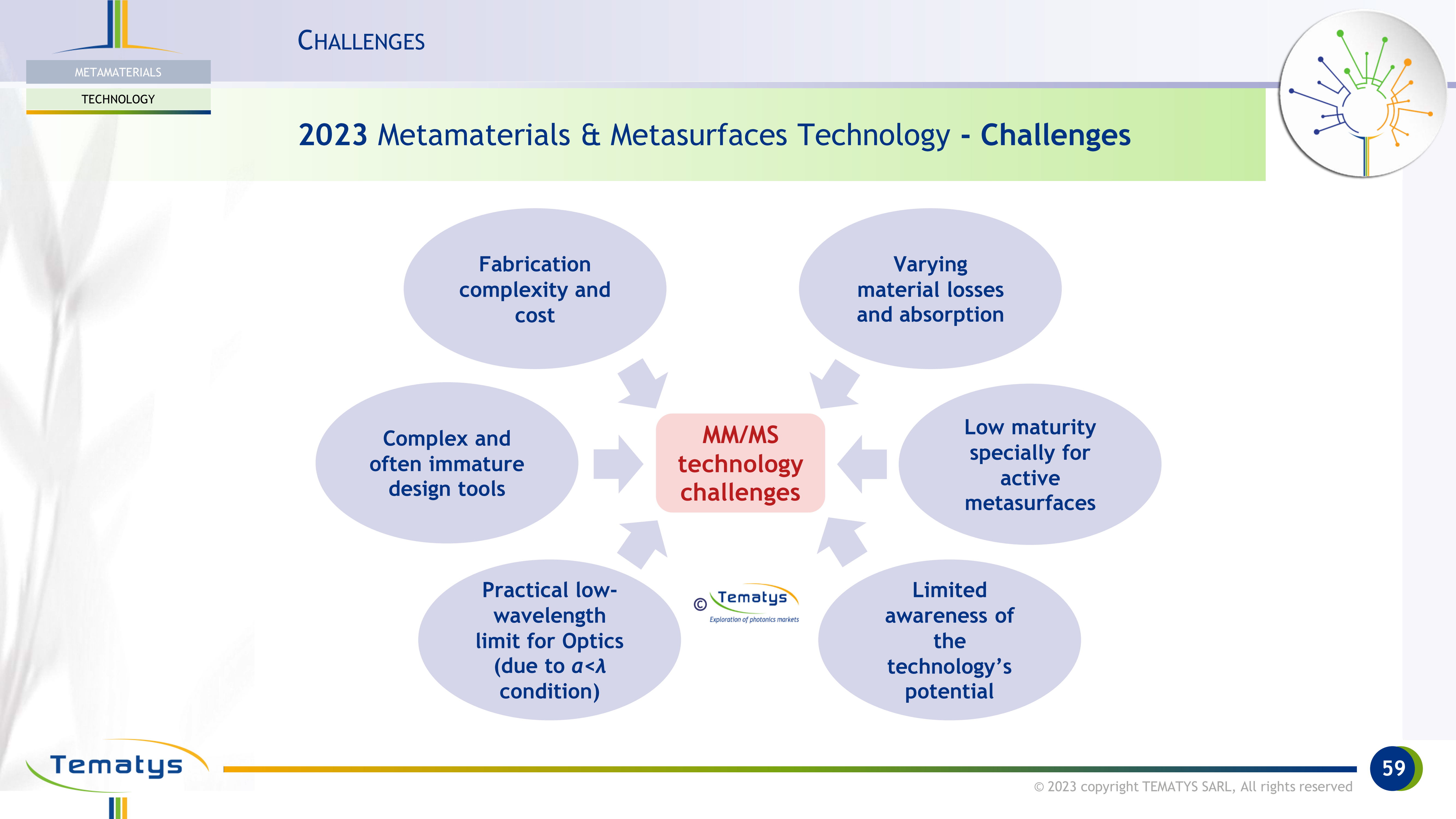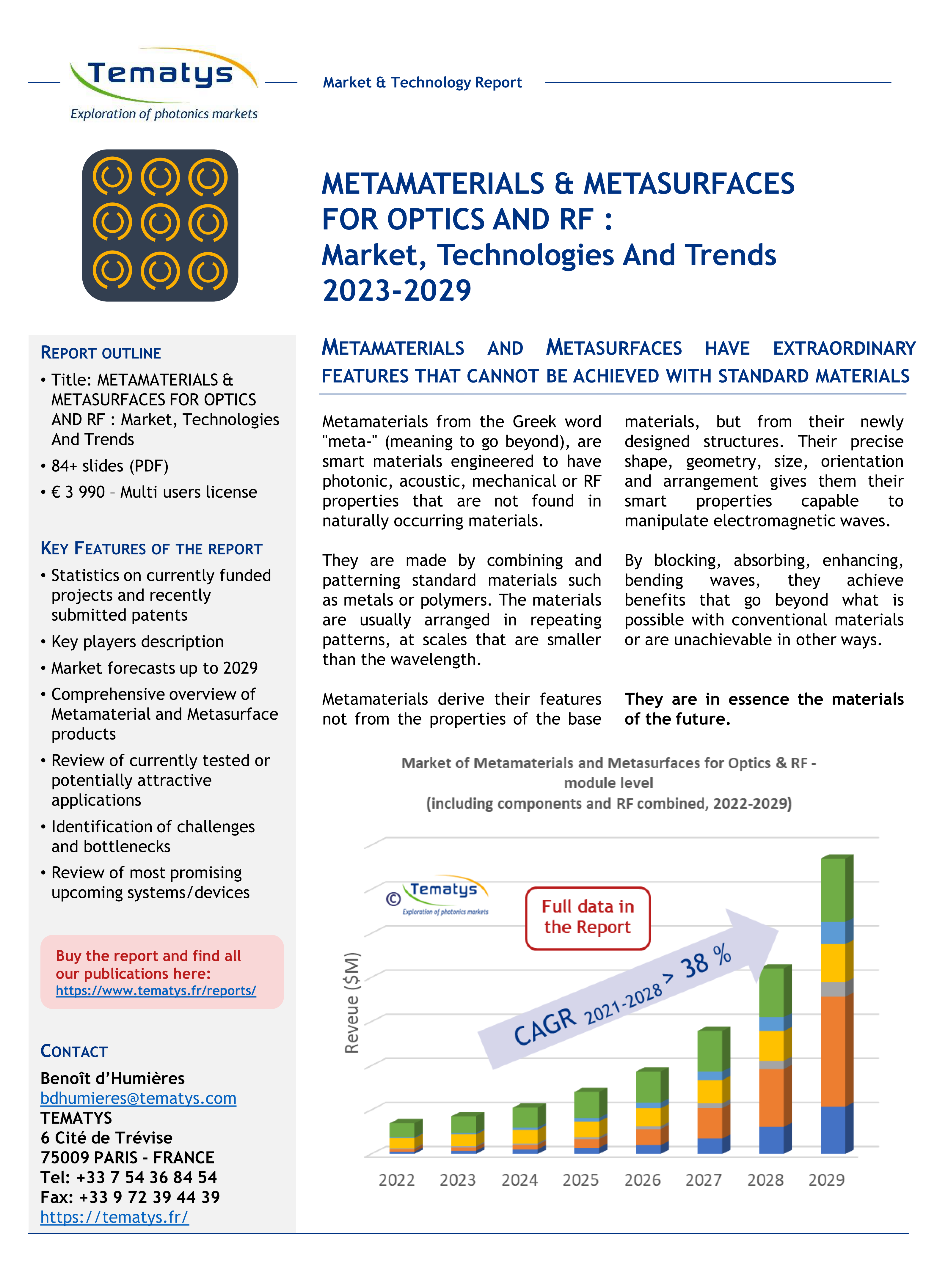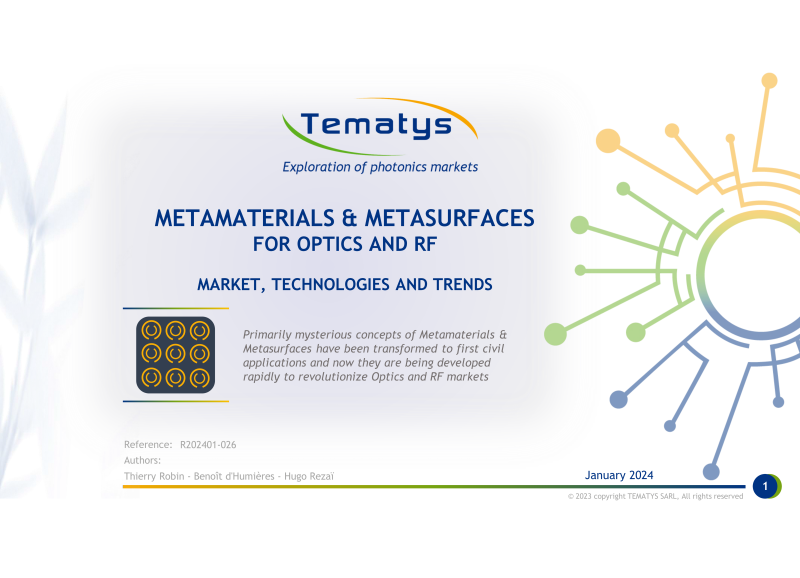Metamaterials & Metasurfaces for Optics and RF: Market, Technologies And Trends (2024)
Metamaterials and Metasurfaces have extraordinary features that cannot be achieved with standard materials
Release date: February 20th, 2024
SEE THE FLYER
Report outline
- 84+ slides (PDF)
- € 3 9490 multi users license
Key Features of the report
- Statistics on currently funded projects and recently submitted patents
- Key players description
- Market forecasts up to 2029
- Comprehensive overview of Metamaterials' and Metasurfaces' products
- Review of currently tested or potentially attractive applications
- Identification of challenges and bottlenecks
- Review of most promising upcoming systems/devices
Metamaterials from the Greek word "meta-" (meaning to go beyond), are smart materials engineered to have photonic, acoustic, mechanical or RF properties that are not found in naturally occurring materials.
They are made by combining and patterning standard materials such as metals or polymers. The materials are usually arranged in repeating patterns, at scales that are smaller than the wavelength.
Metamaterials derive their features not from the properties of the base materials, but from their newly designed structures. Their precise shape, geometry, size, orientation and arrangement gives them their smart properties capable to manipulate electromagnetic waves.
By blocking, absorbing, enhancing, bending waves, they achieve benefits that go beyond what is possible with conventional materials or are unachievable in other ways.
They are in essence the materials of the future.

In June 2022, STMicroelectronics released the first consumer module using a metasurface.
STMicro VL53L8 sensor is a new 3D direct Time-of-Flight (dToF) sensing module using metasurfaces developed through the partnership with Metalenz.
Metasurfaces are now on the market marking the introduction of this revolutionary optical technology in real-world consumer devices.
Developed in partnership with Metalenz, this first metasurface technology enables optical systems to collect more light, provide multiple functions in a single layer, and deliver new forms of sensing in smartphones and other devices, all in its compact package.
The value chain for high-volume production is becoming a reality.

Despite some remaining challenges, the progress made to date shows great promise for the development of optics, photonics and RF systems.
For the RF market, metamaterials targeting microwave frequencies have been successfully harnessed for wireless (antenna) technology and they are now entering 5G and 6G infrastructure and other devices.
The main trends in Optics is the development of Metalenses and Metacomponents for smartphones, 3D sensing and AR/VR devices.
Thanks to unusual performances, Metamaterials and Metasurfaces will very soon lead to disruptions on the markets.
These performances, together with reduced size and weight, and new functionalities, make Metamaterials and Metasurfaces a potential game-changer, with the opportunity to revolutionize a lot of products in Optics and RF.
Manufacturers mentioned in the report:
Anywaves, Carillon Technologies, Echodyne, Evolv Technology, Gapwaves AB, Greenerwave, Huawei Technologies, Kuang-Chi Group, Kymeta Corporation, Lumotive, Metalenz, MetaPower, Metawave Corporation, NIL Technology (NILT), Pivotal Commware, Acree Technologies Incorporated, Antrum Ltd, appliedEM innovations, BlueHalo, Fractal Antenna Systems, Isotropic Systems, JEM Engineering, LongWave Photonics, Meta Material Inc., Metaboards, Metacept, Metamagnetics Inc., Moxtek, Multiwave Technologies AG, Nano-Meta Technologies, Nanohmics, Notch Inc., Phoebus Optoelectronics, Physical Sciences Inc., Plasmonics Inc., Radi-Cool, Sensormetrix, SI2 Technologies, TeraView, Tesla Dynamic Coils BV, Tunoptix, Ultimetas, Vadient Optics, Wave UP
+ Companies conducting research on Metamaterials and Metasurfaces
----------------------------------------
Table of contents
Report’s objectives
Information sources and methodology
Scope of the report
List of abbreviations
Glossary
List of companies mentioned in the study
Metamaterials for Optics and RF – what does it mean?
Abundance of ideas and research
From Defense, through RF to Optics
Value chain
Market data
Funding and key partnerships
Funded projects
Patents
Forecasts
Optics
RF
Other segments (Acoustics, Mechanics)
Challenges
Potential disruptions on the Optical market
Metalenses in smartphones
Meta-components in AR/VR devices
Metasurfaces for optical computing
Metasurfaces in display devices
Potential disruption on the RF market
RIS for 5G/6G systems
R202401-026 M&M RF 2024 - FLYER
R202401-026 M&M 2024 - EXTRACT






